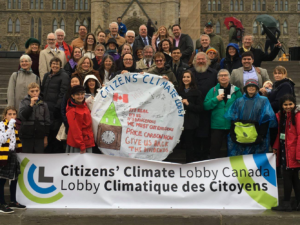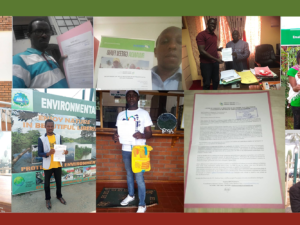
Climate change threatens to undermine food production in Benue state, the food basket of Nigeria.
The food we consume depends on a reliable background of natural systems, which bring together nutrients, water, patterns of temperature and precipitation at specific times of year, and numerous ecological factors. All of these factors are necessary to allow for reliable food production, and climate change is projected to disrupt all of them in some way. To understand future food security risks, we need to know more about the specific variations affecting crop yields in specific regions.
My study assessed the effects of climate variability on the vulnerability of crop yields in Benue State, Nigeria—considering both direct and indirect effects on crop yield and the overall implications for food security in Nigeria. I chose this area of study, because climate change poses a significant and multifaceted threat to production systems and food security in Nigeria. At present, Nigeria is experiencing the worst food inflation in her history.
Through an interdisciplinary approach, the study analyses the current state of scientific knowledge, focusing on the potential consequences of rising temperatures, altered precipitation patterns, extreme weather events, and the adaptive capacity of farmers in Benue State the food basket of Nigeria. I examined the socioeconomic dimensions of food production vulnerability (exposure, sensitivity, and adaptive capacity) using household data while trends in temperature and precipitation were computed for the periods of 1991 to 2022 in R statistics using the Mann-Kendall test and Sen’s slope. Rclimdex was used to examine temperature and rainfall extremes in the study area.
The results show that temperature has increased in the study area at the rate of by 0.23oC per decade over a 30-year period while precipitation has decreased by 1.3mm per decade over that same period. Similar trends were also observed within the Local Government areas of the state. The analysis of climate extreme events in the state shows an increase in the number of warm days and nights as well as warm spell duration index while cold days and nights are decreasing—indicating warming in the study area. Precipitation extremes show a decrease in total precipitation, while consecutive dry days are increasing. The analysis indicates a high level of exposure and the vulnerability of farmers in the study area due to their low adaptive capacity.
The result of the study suggests that there is a strong and reliable statistical basis for concluding that climate variability is impacting on crop yield and the farmers in Benue State Nigeria. The results show that rainfall and temperature extremescan impact crop phenology and timing and lead to reduced yields or even total crop failures.
The study highlights the urgent need for coordinated efforts to adapt to food production systems as the climate continues to change. The findings underscore the importance of integrating climate change adaptation strategies into agricultural policies and practices at the local level, to ensure food security for a growing national population.
By synthesizing current knowledge and identifying critical research gaps, the study provides valuable insights for policymakers, researchers, local farmers and practitioners working towards sustainable and resilient regenerative agriculture and food systems in the face of climate change, in Benue state—the food basket of Nigeria. Finally, the increasing warming observed in the study area may increase the risk of poor crop yield and cause Benue to lose her title as the food basket of Nigeria. Declining yields could mean the food basket is leaking, and the local population might need food security support from elsewhere.
This evidence shows climate change is already putting pressure on food production in the most important food producing region of Nigeria—one of the world’s most populous countries. Increasingly, this kind of information is needed by governments at national and local levels, and by financial and multilateral institutions, to ensure food systems and macroeconomies are stable and sustainable.

Dr. Michael David Terungwa, PhD, attended the African Regional Dialogue on The Africa We Want and the United Nations We Need, which will feed input from stakeholders and leaders into the United Nations Summit of the Future in September 2024.








